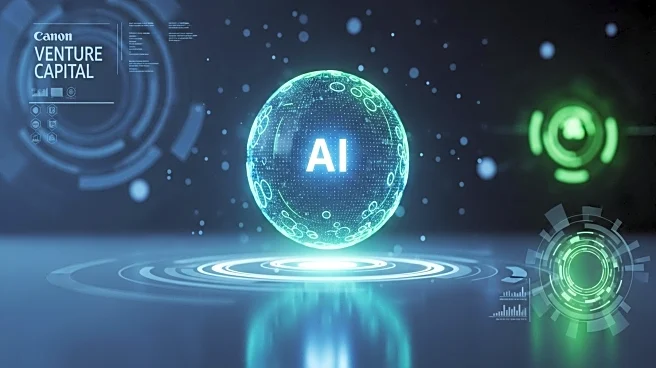What is the story about?
What's Happening?
In 2025, venture capitalists have invested a record $192.7 billion into artificial intelligence startups, marking a significant milestone where AI receives more than half of total VC funding. According to PitchBook data, this trend reflects the growing importance of AI in the tech industry, with major investments going to established companies like Anthropic and xAI. The focus on AI has led to a bifurcation in the market, with non-AI startups struggling to attract funding.
Why It's Important?
The dominance of AI in venture capital investment underscores its critical role in shaping the future of technology and innovation. For the U.S., this trend positions the country as a leader in AI development, potentially driving advancements in various sectors such as healthcare, finance, and transportation. The substantial investment in AI startups can lead to accelerated technological progress, influencing public policy and economic strategies. However, it also highlights challenges for non-AI companies, which may face difficulties in securing funding and competing in a market increasingly focused on AI solutions.
What's Next?
As AI continues to attract significant investment, startups in this field are likely to expand their research and development efforts, leading to new applications and technologies. Venture capitalists may continue to prioritize AI, potentially reshaping the landscape of tech investment. This could prompt non-AI companies to pivot towards AI integration or seek alternative funding sources. The ongoing focus on AI may also influence regulatory and ethical discussions, as stakeholders consider the implications of AI-driven innovation.
Beyond the Headlines
The concentration of investment in AI raises ethical and societal questions about the impact of automation and machine learning on employment and privacy. As AI technologies become more pervasive, there is a need for robust frameworks to address potential biases and ensure equitable access to AI benefits. Long-term, this could lead to shifts in workforce dynamics and necessitate new educational approaches to prepare individuals for an AI-driven economy.















